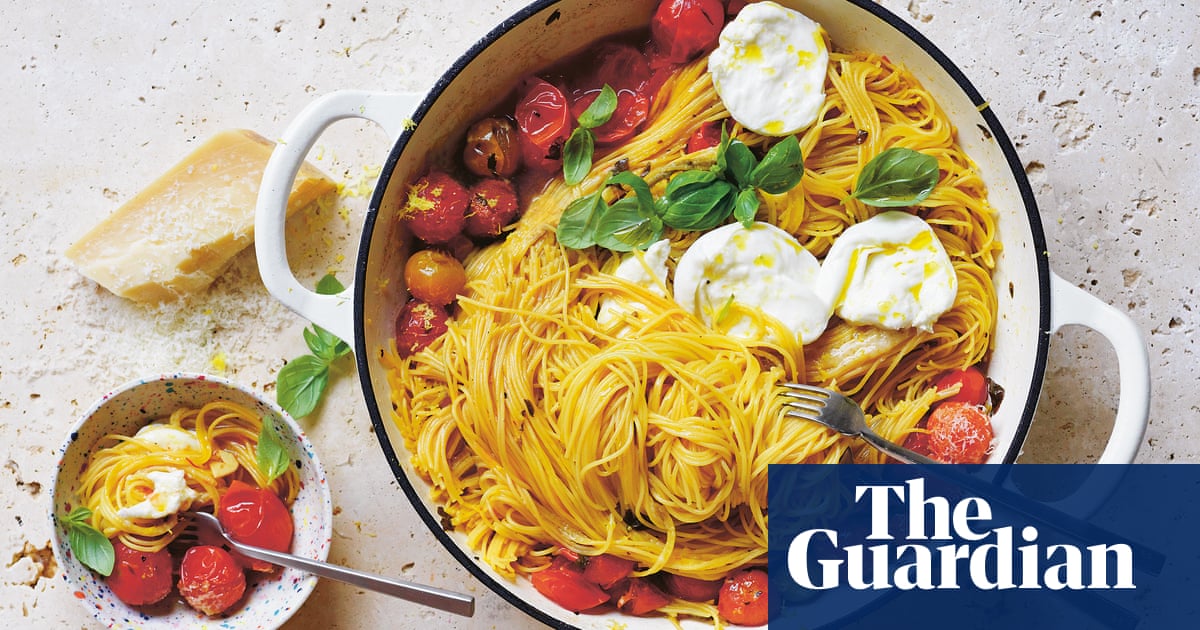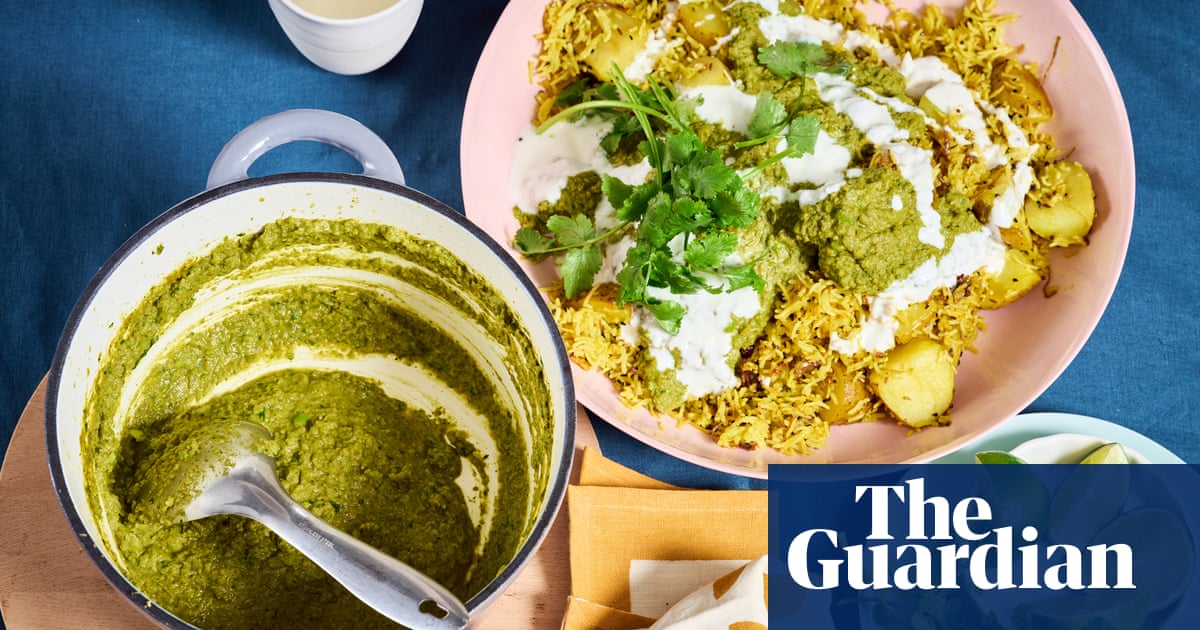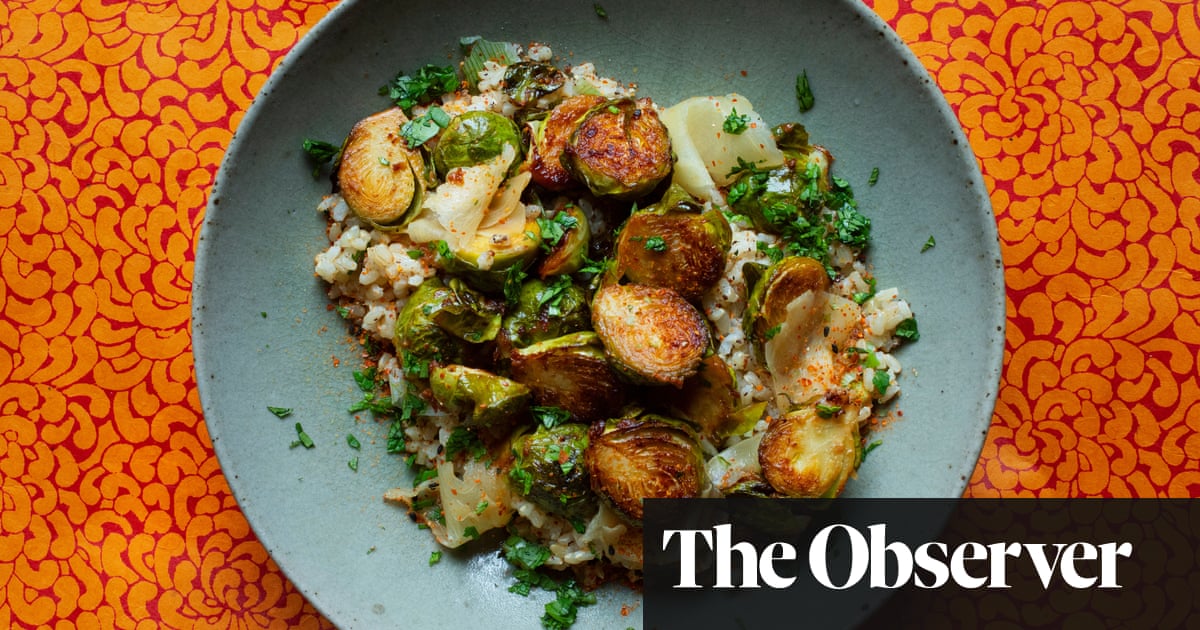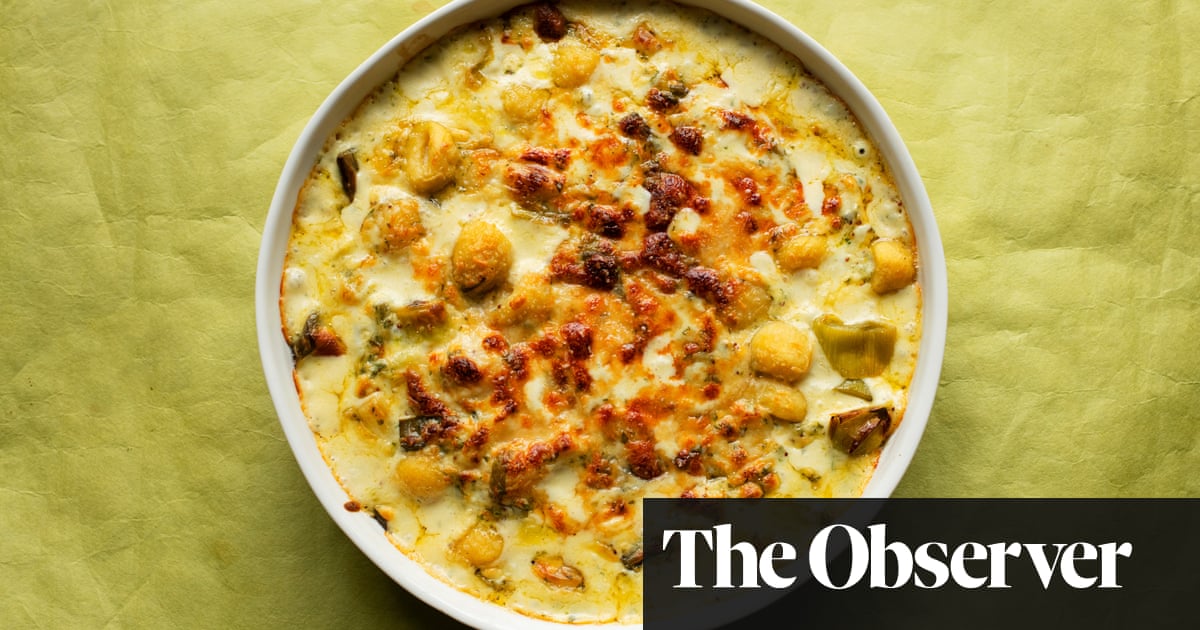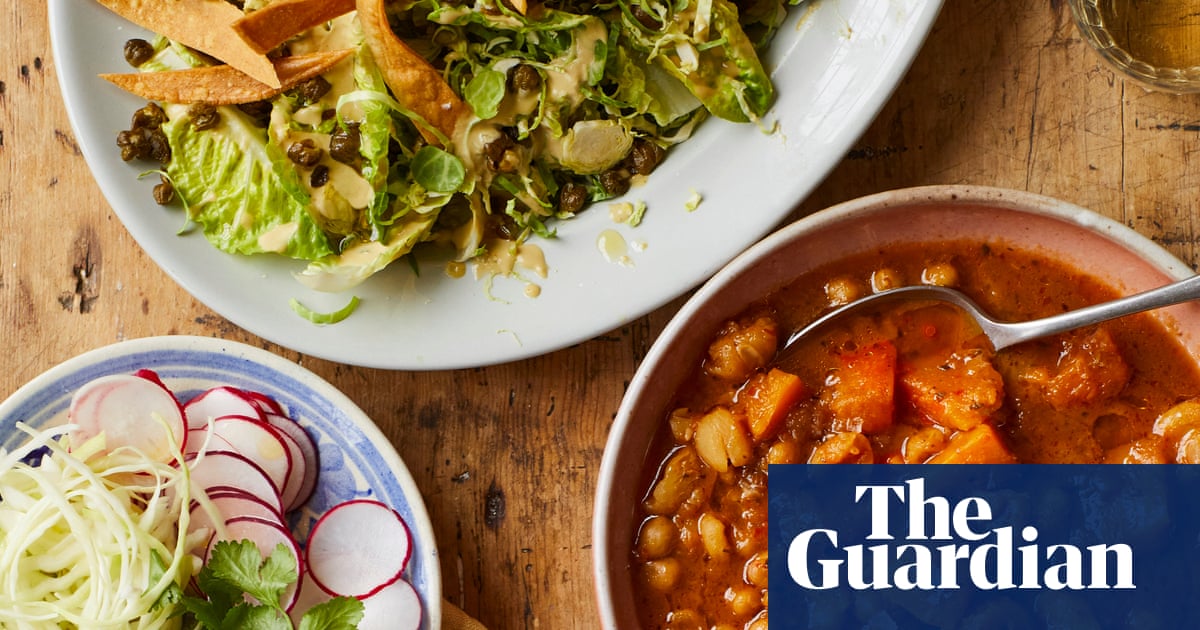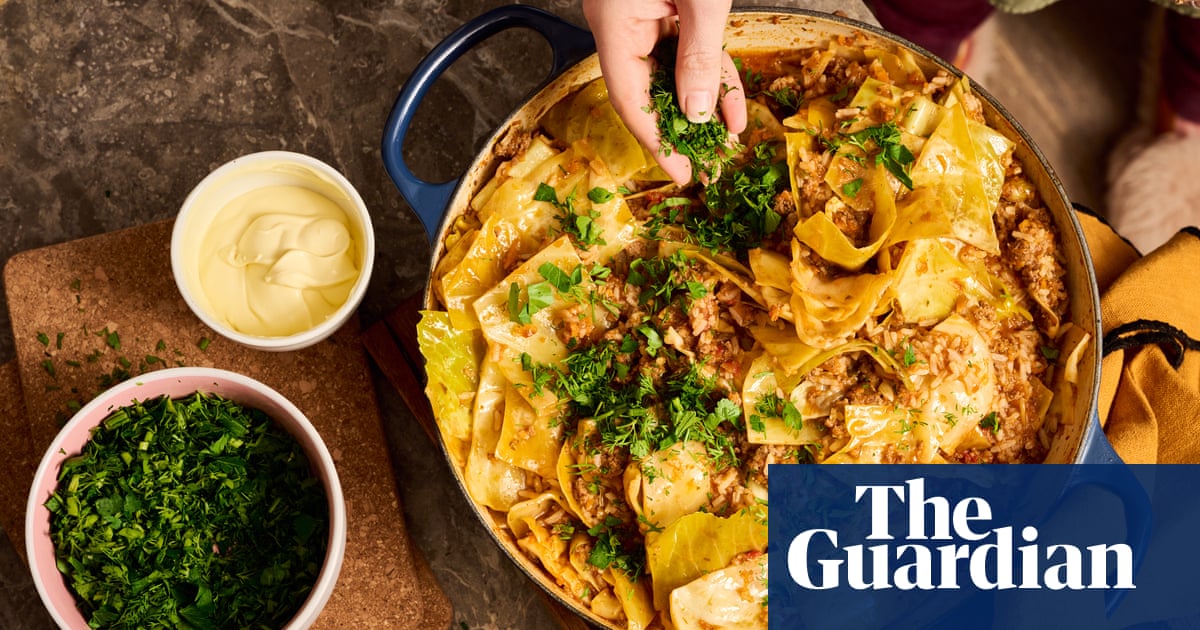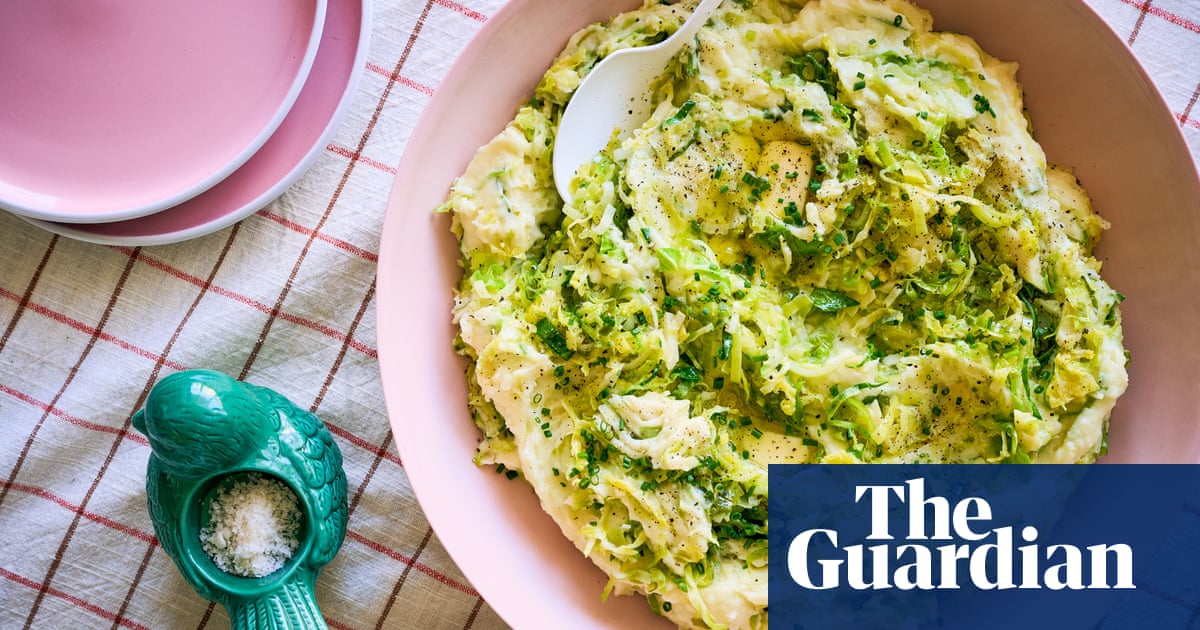
The Australian calendar might say spring, but, in my part of frosty Victoria, the weather insists on staying wintry. And you won’t hear me complaining because leeks and brussels sprouts are having a moment.
Leeks are the most “cabbagey” of the alliums – particularly the dark green tops. So don’t throw them out! Many recipes call for only the whiter parts of the leek because they are tender and mild in flavour. But if you give the greens a good rinse and freeze them, they’ll be ready to flavour stocks and soups. (Think of them as the vanilla bean of the savoury persuasion.)
Leeks are notoriously sandy, particularly in the folds. If you’re using just the white parts for a dish, the best way to dislodge the grit is to trim off the green tops (I’ll say it again – don’t throw them out!), slice in half vertically, rinse well under the tap, then slice and soak in cold water. This not only helps to encourage the gritty bits to drop to the bottom of the bowl, but it also rejuvenates the leeks and makes them extra juicy, like they’ve visited the day spa.
If you need the leeks – whites, greens and all – to break down and absorb maximum flavour (like in the colcannon recipe below) cut them against the grain into discs or semi-circles. But if you want them to stay slippery and silky for a stir-fry or as a luscious topping for steamed fish, slice into batons, then julienne with the grain.
If leeks are allium-cabbages, then brussels sprouts are cabbages in miniature. And like cabbages, you overboil or underseason them at your peril. The key to cooking brussels sprouts is to slice them in half to expose the tight inner sanctums to heat as quickly as possible, so that the outer leaves don’t overcook by the time the insides are done.
You can deliberately undercook them – blanch for five minutes, drain and let the residual heat do its magic. You can also burnish them in a super-hot oven for 10 to 12 minutes until they’re quite charred, or deep-fry them for three to four minutes for a textural and taste sensation (just make sure they’re extra dry before you fry).
Sign up for the fun stuff with our rundown of must-reads, pop culture and tips for the weekend, every Saturday morning
Leek and brussels sprout colcannon
Colcannon is like a croquette without its coat. The best bit – the filling – is right there in all its pure, velvety, buttery glory.
Usually in a colcannon, green cabbage is folded through the mashed potato, but I’ve used brussels sprouts to think outside the veg box (incidentally, if you subscribe to a veg box, chances are you’ve scored sprouts this week). This can be made with any kind of brassica, from cavolo nero to savoy cabbage – and it’s also why you can leave the cabbagey green tops of the leeks on. The result is a comforting dish that goes beautifully with smoked fish, roast vegetables or grilled chops.
For an express version of this recipe, you can use leftover mash – just sweat the leeks and sprouts, then fold through the warmed mash. And if you want an encore of this colcannon, I strongly suggest you make double, then fry the leftovers into fritters; or shape them into patties or logs, dip in flour, then egg, put on a coat of breadcrumbs and shallow fry.
If you don’t have cream in the fridge, use the equivalent amount of milk and add a touch of extra butter. To make this recipe vegan, use olive oil instead of butter and loosen the mix with some of the water you boiled the potatoes in, or fold through your vegan “cream” of choice.
Serves 6
1kg washed, starchy potatoes (I’ve used coliban), peeled and cut into roughly 3cm chunks
1 large leek, green parts trimmed but kept intact
6-8 medium-large brussels sprouts (250g)
60ml extra-virgin olive oil (¼ cup), plus extra to serve
150g butter
2 bay leaves, fresh or dried
½ tsp white peppercorns, finely crushed, plus extra to serve
125ml milk
125ml cream (pouring cream, thick cream, sour cream, creme fraiche – whatever you like!)
Chopped chives, to serve
Place potatoes in a large pot and top with cold water and a teaspoon of salt. Bring to the boil, then reduce to a medium heat and simmer for 20 to 25 minutes until fork-tender.
While the potatoes cook, slice leek in half lengthways, and wash well. Finely slice into semi-circles, greens and all. Place into a salad spinner filled with cold water, and give them a good swish to help dislodge any remaining grit. Leave to soak.
Shred the brussels sprouts very finely against the grain and set aside. (If you have large sprouts, slice in half first, then rest on the flat side to shred).
Drain and spin-dry the leeks. Heat a large heavy-based frying pan over medium-high heat, and add the oil and half the butter. When the butter is foaming, add the leeks, bay leaves, white pepper and salt, to taste, and saute for one minute, tossing to combine. Cover with a lid and sweat for 10 minutes, then add the shredded brussels sprouts, toss to combine, cover with a lid and sweat for another 10 minutes.
Drain the potatoes well, then return them to the pot and let them steam-dry for one to two minutes. Mash with a potato masher to your liking (I like a smoother mash, but chunky is very acceptable too).
In a small saucepan, gently warm the milk and cream. Add the milk-cream mixture and remaining butter to the mash and stir well to combine. Remove and discard the bay leaves from the leek and brussels sprouts mixture; fold the mixture through the mash.
To serve, place the colcannon in a large shallow serving bowl and drizzle with extra-virgin olive oil, and sprinkle with chopped chives and cracked white pepper.




